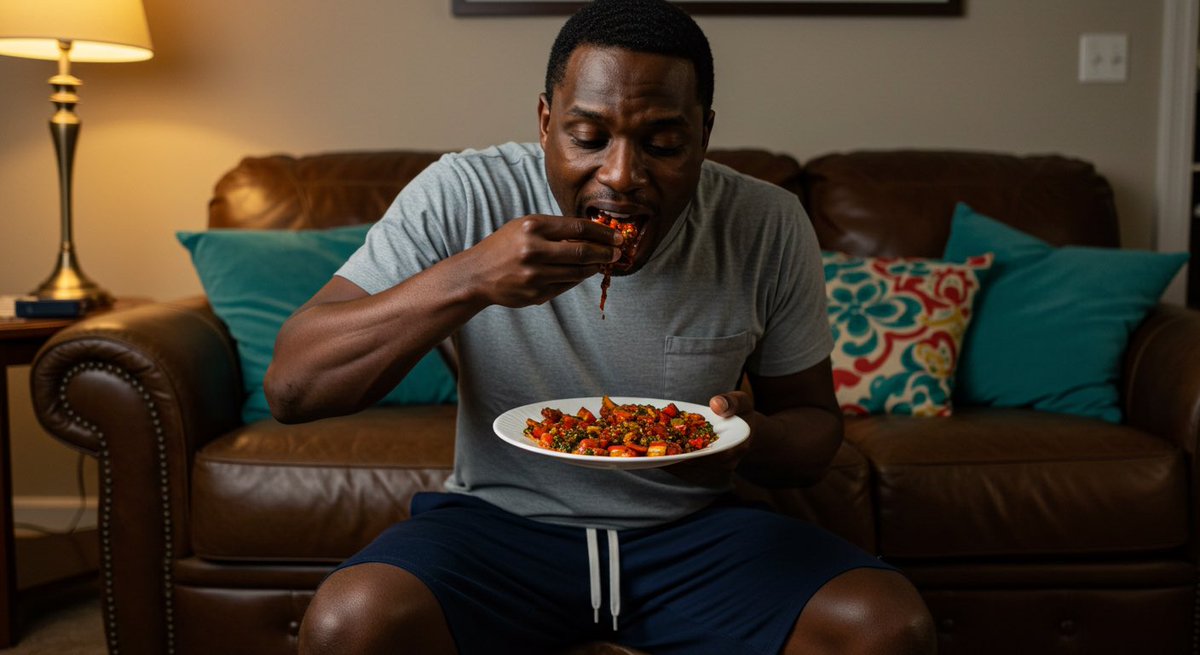You cooked more food than you can finish.
So you put the leftovers in the fridge.
The next day, you warmed it up without thinking. After all, food is food, right?
But some meals change when reheated. And not in a good way. 🧵

So you put the leftovers in the fridge.
The next day, you warmed it up without thinking. After all, food is food, right?
But some meals change when reheated. And not in a good way. 🧵


Let’s start with rice, the most common culprit.
The danger isn’t in reheating it. It’s how it was stored.
Rice can grow a bacteria called Bacillus cereus if left out too long after cooking.
Reheating it doesn’t always kill the toxins it produces.
Resulting in nausea, vomiting, and stomach cramps.
Tip: Cool it fast. Refrigerate within 1 hour. Reheat thoroughly. Never reheat more than once.
The danger isn’t in reheating it. It’s how it was stored.
Rice can grow a bacteria called Bacillus cereus if left out too long after cooking.
Reheating it doesn’t always kill the toxins it produces.
Resulting in nausea, vomiting, and stomach cramps.
Tip: Cool it fast. Refrigerate within 1 hour. Reheat thoroughly. Never reheat more than once.
Spinach, beets, and carrots, harmless when fresh.
But when reheated (especially in the microwave), the natural nitrates in them can convert to nitrites, which may become carcinogenic in high amounts.
Especially avoid reheating them for babies or toddlers. Their bodies process nitrites less efficiently.
Chicken, especially when reheated unevenly.
But when reheated (especially in the microwave), the natural nitrates in them can convert to nitrites, which may become carcinogenic in high amounts.
Especially avoid reheating them for babies or toddlers. Their bodies process nitrites less efficiently.
Chicken, especially when reheated unevenly.
Microwaves often heat the outside but leave cold spots inside.
Reheated chicken that hasn’t reached the right internal temp can harbour bacteria like Salmonella or Campylobacter, especially if undercooked the first time.
Tip: Reheat chicken on the stove or in the oven if you can. And always heat until steaming hot throughout.
Mushrooms, if not stored properly, they can break down quickly and grow harmful bacteria.
Reheated chicken that hasn’t reached the right internal temp can harbour bacteria like Salmonella or Campylobacter, especially if undercooked the first time.
Tip: Reheat chicken on the stove or in the oven if you can. And always heat until steaming hot throughout.
Mushrooms, if not stored properly, they can break down quickly and grow harmful bacteria.
Reheating them after a day or two can mess with your gut and cause bloating or even food poisoning symptoms.
Tip: Only cook what you’ll eat. Mushrooms don’t reheat well; it's best to eat them fresh.
Reheating isn’t the problem.
Poor storage, uneven heating, and lack of food safety awareness are.
You don’t have to throw everything away; just know what you’re dealing with.
What food do you always reheat, even when you shouldn’t? 👀
Tip: Only cook what you’ll eat. Mushrooms don’t reheat well; it's best to eat them fresh.
Reheating isn’t the problem.
Poor storage, uneven heating, and lack of food safety awareness are.
You don’t have to throw everything away; just know what you’re dealing with.
What food do you always reheat, even when you shouldn’t? 👀
• • •
Missing some Tweet in this thread? You can try to
force a refresh


















